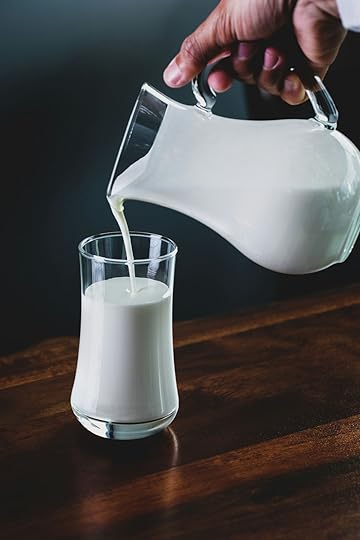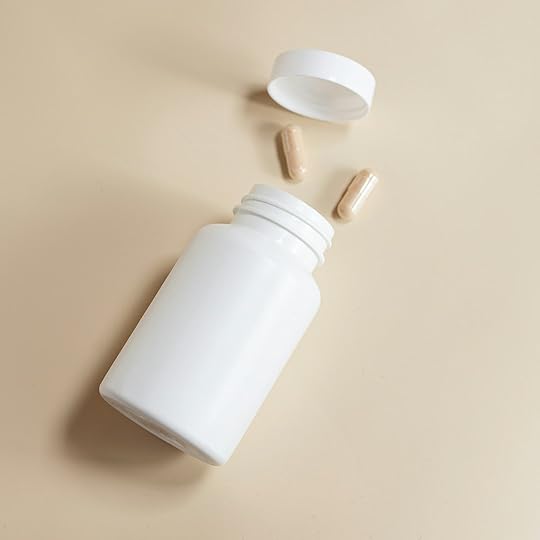Emily Leeming's Blog, page 8
September 4, 2024
Food intolerance tests 🧠 legit or scam?
If you have gut issues - like bloating, tummy discomfort, constipation or diarrhoea - then you may have considered taking a food intolerance test.
After all, we live in the modern age, so surely a simple blood test should be able to tell you what food, if there is one, is a problem for you.
Right?
But then you get a long list of foods that you can’t eat. That you’re supposedly intolerant to.
 Photo by Fa Barboza on UnsplashWhat is a food intolerance test?
Photo by Fa Barboza on UnsplashWhat is a food intolerance test? Unlike food allergies, where the immune...
August 28, 2024
Beat food cravings 🧠 with these 3 gut-boosting veggies
The longer I’ve worked in nutrition research, the more I’ve realised that healthy eating isn’t about avoiding the foods you love.
I enjoy chocolate and the occasional juicy burger as much as you do.
I know - and the science says - that if you cut a food out, you crave it more.
And when you do eat it, you eat twice as much.
Instead, it’s about adding-in foods.
Foods like leeks, salsify, and Jerusalem artichokes.
Yes, that’s right.
A small study found that eating plenty of these veggies has a lastin...
August 22, 2024
Is unpasteurised milk 🧠 a gut health elixir?
Radio interview requests can happen suddenly.
Tuesday morning, instead of my usual alarm clock, my phone pinged with a 6.30am text from the BBC.
The pressing news for commentary?
A famous footballer had been spotted carrying a bottle of raw unpasteurised milk into training.
Move aside sports drinks, is it raw unpasteurised milk that makes you match-fit ready?
 Photo by Eiliv Aceron on Unsplash
Photo by Eiliv Aceron on UnsplashPasteurised milk is milk that has been heat-treated to kill off any harmful bacteria.
This gives it a longer...
August 14, 2024
Is stress making you and your gut bacteria sick? 🧠
A quick ask - if you’ve read my book Genius Gut and loved it, would you be happy to leave a glowing review on Amazon?
Amazon reviews help other readers to find an author’s book, and for two quick minutes of your time makes a world of difference (and a big thank you from me 🧡)
One reason why you’re more likely to get sick when you’re stressed, is down to how stress effects the gut microbiome.
That’s because your gut microbiome works closely with your immune system, what with your gut containing 70...
August 7, 2024
What your poo tells you about your brain health 🧠
What your poo looks like and how often you ‘go’ is an easy way to tell how healthy your gut is (and your gut microbiome too).
But what about the health of your brain - your mood and cognitive power - simply from peering into the toilet bowl?
So let’s lift the lid and dive right in, figuratively of course.
 Photo by Vadim Artyukhin on UnsplashAn ideal poo for a happy gut?
Photo by Vadim Artyukhin on UnsplashAn ideal poo for a happy gut?One that is shaped like a smooth brown sausage, or a sausage with cracks in it.
For a healthy gut, you should poo anywhere from t...
July 31, 2024
We're overcomplicating gut health 🧠 try these 5 simple add-ins instead
There are so many fancy-pants gut health products out there, with glamorous packaging and big promises.
It’s overwhelming, to the point that it seems almost as though you can’t have good gut health without a row of slickly packaged products in your arsenal.
From green powders (I might have called them the equivalent of a cup-a-soup on a recent BBC podcast), to pills and potions, there’s an overwhelming number of gut health products available promising a quick fix, for a price.
 Photo by Supliful ...
Photo by Supliful ...
July 24, 2024
Big announcement 🧠 Genius Gut hits the shelves!
It’s TIME.
My book, Genius Gut, will be arriving on your doorstep tomorrow, and available in bookstores across the UK.
Genius Gut breaks down the science of your gut-brain connection and how your gut microbiome signals to your brain, with 10 simple hacks on how and what to eat to boost your mood, be mentally sharp and feel amazing.
 Microbiome scientist, dietitian, former chef…and now author - phew!
Microbiome scientist, dietitian, former chef…and now author - phew!Turns out having a varied career across food and health can only be a great thing.
Genius Gut is colo...
July 17, 2024
What to eat to boost your brain? 🧠
Fibre needs to share the limelight - meet polyphenols, a group of antioxidants that give colour to the many fruit and vegetables that we know and love.
There are over 8000 types of polyphenols, and different types contribute to the variety of colour pigments found in fruit, vegetables, beans, whole grains and more.
From the deep purple of an aubergine (or eggplant if you’re in the US), to the burnishing red of a summer tomato, polyphenols are partly to thank, together with other bioactive compound...
July 10, 2024
Book Launch Invitation 🧠 Genius Gut by Dr Emily Leeming
At 3 pm every Wednesday I break down for you the latest science of the gut-brain connection.
Today though, I want to share something different.
An invitation!
I’m thrilled to invite you to the launch of my groundbreaking new book, Genius Gut.
It’s a unique opportunity to dive into the revolutionary science of the gut-brain connection in person with me, Dr Emily Leeming, microbiome scientist and registered dietitian.

Exclusive Access: Purchase my book two days before it hits the stores.
Book Signing:...
July 3, 2024
We have a BIG fibre problem 🧠
I’m always banging on about fibre. And for very good reason.
No one used to care about fibre, and I get it - it hardly had a glamorous reputation. It was known for helping you to ‘go’, and that was about it.
But how times have changed. We now know how much we’ve underestimated fibre, and just how important it is. I’m a whisker away from calling it a superfood if only such a thing existed.
Fibre is often considered the fourth macronutrient - ‘macro’ as in we need a lot of it, at least 30g of fib...



